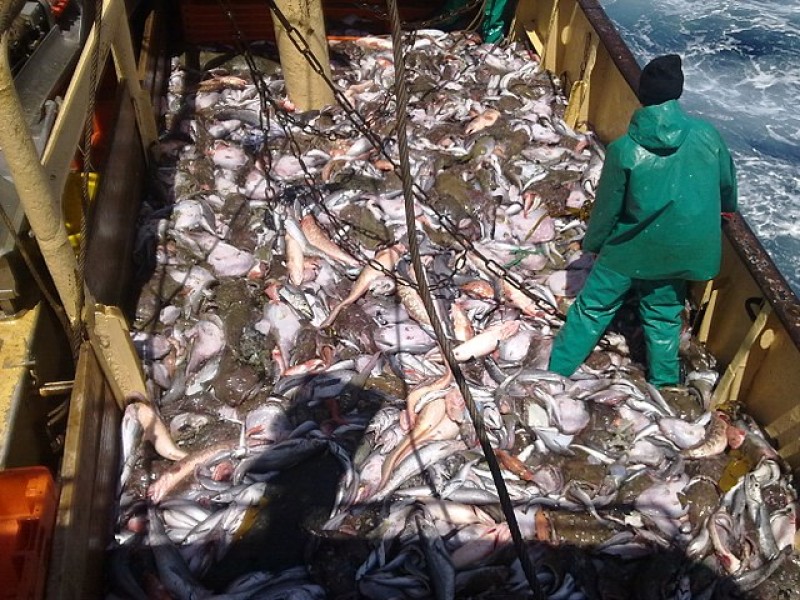The region might thus be losing as much as US$9.4 billion every year – equivalent to the annual GDP of Guinea-Bissau, Sierra Leone and Liberia combined.
The coastal waters of West Africa contain some of the world’s richest fishing grounds. These are, however, being increasingly depleted by unsustainable industrial fishing.
The depletion has huge social consequences, said the report, as the region is highly dependent on fishing for income and nutrition. The Food and Agriculture Organization estimated that up to one-quarter of all local jobs are linked to fisheries.
In Senegal — assessed as one of the hardest-hit countries — catch numbers in the artisanal fishing sector fell by 8.7% in 2018 compared to the previous year, according to the latest available data.
Local fishermen complained to the authors of the report that IUU fishing was widespread.
“We very rarely see patrolling coastguard vessels. The authorities have given a specific area for industrial vessels to operate but they don’t respect this so illegal fishing is rampant,” said Oumar Dièy, coordinator of the council for artisanal fishing in Saint Louis.
The Senegalese government has refused to publish the fishing licenses granted to industrial vessels and their catches, raising doubts about its willingness to combat illegal practices in the sector.
Greenpeace in 2021 strengthened these doubts when it exposed that Senegal’s ministry of fishing issued licenses to vessels belonging to a Chinese industrial fleet previously implicated in illegal fishing.
The Financial Transparency Coalition also found that nearly a quarter of the vessels involved in IUU fishing, for which beneficial ownership information was available, were owned by 10 companies. Of these, eight were Chinese, one Spanish and one Colombian.
The companies tended to use complex ownership structures and offshore jurisdictions to hide their ownership. Some also engaged in flag hopping to avoid legal repercussions of their actions.
For example, the Gabu Reefer — a vessel fined in 2014 by Liberia and owned by Panama-registered Fishing & Cargo Services SA — previously operated under flags of the Netherlands, Antigua and Bermuda, Panama, Comoros, Moldova and Cameroon.
The report suggested that insufficient regulation and lack of transparency in the sector are the main reasons why illegal fishing continues largely unrestrained.
“Vessel operators for the most part still do not need to register the beneficial ownership information when requesting a fishing license or registering a vessel, many fisheries agreements remain secret and most countries do not reveal their IUU lists except for very few exceptions,” it said.
The Fisheries Transparency Initiative attempts to address this critical gap. However, as of October 2022, it has only five members who have committed to increase public oversight in their fishing sectors – Cabo Verde, Ecuador, Madagascar, São Tomé and Príncipe and Senegal.






